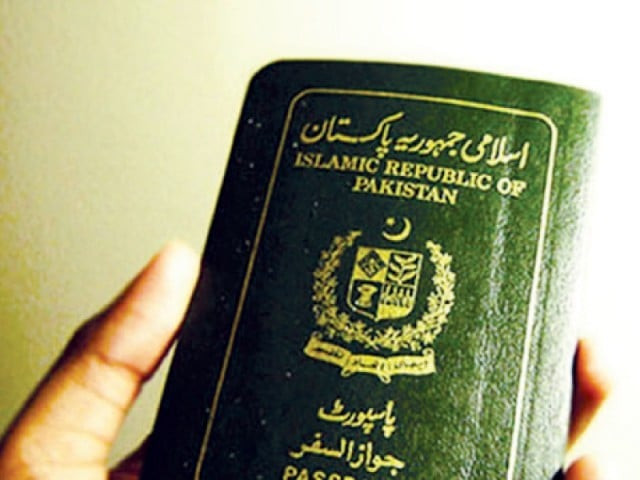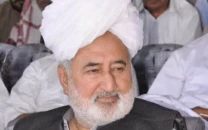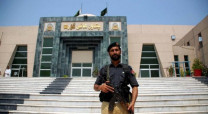‘Security’ fears block tweak in citizenship law
The law denies citizenship to foreign husbands of Pakistani women

PHOTO: FILE
The Pakistan Muslim League-Nawaz opposed the legislation, tabled by a Pakistan Tehreek-e-Insaf lawmaker, on grounds that amending the law could “jeopardise national security by allowing hostile countries to set up espionage networks by simply marrying Pakistani women.”
Although it’s still a very tedious procedure, Pakistani laws allow women of foreign origin to acquire residence certificates and subsequently citizenship if they are married to Pakistani men.
Over 3,500 foreign nationals married to Pakistanis in a bind
The reverse, however, is prohibited. The Pakistan Citizenship Act, 1951 puts a blanket ban on foreign national husbands of Pakistani women from becoming citizens of Pakistan.
In March this year, PTI Senator Azam Swati tabled a private member’s bill in the upper house to amend the law and allow foreign national husbands of Pakistani women to be naturalised.
The bill was referred to the Senate’s Standing Committee on Interior for discussion. The panel sought input from the government on April 10 and submitted its report to the Senate last week. The report stated that interior ministry representatives had opposed the bill.
“The legislation will provide a blanket cover to an influx of immigrants, providing them an easy way to find a permanent abode in Pakistan through marriages,” the report quoted interior ministry officials as saying. “This (amended law) may also be used by a hostile country to ingress through marriage and set up an espionage network,” it added.
They also contended that a similar bill was pending in the National Assembly and some cases were also pending in the Supreme Court.
Although the committee rejected the ministry’s logic, terming it unreasonable and baseless, it recommended the house drop it for the time being.
Swati had cited article 25 of the Constitution – which guarantees equality and equal protection to all citizens without any gender bias – and article 35 – which binds the state to ensure protection of marriage, family, mother and child, to all citizens.
Various international conventions, to which Pakistan is also a signatory, also require abolition of gender-based laws, ensuring protection of family and right to adoption of nationality.
Swati’s bill proposed insertion of new sub-sections 10A, 10B and 10C in the Pakistan Citizenship Act. It also proposed some safeguards against sham marriages.
The bill proposed that any man applying for registration as a citizen of Pakistan, should fulfill following conditions:
Nisar orders granting Pakistani citizenship to Indian woman
“He should have resided in Pakistan throughout the period of twelve months immediately preceding the date of the application. Before this period of one year, he should have resided in Pakistan for an aggregate period of at least seven years.
“This man should have been married to a Pakistani woman for at least five years and their marriage has not been dissolved.
“The wife has not relinquished her Pakistani citizenship in favour of her husband’s citizenship.
“He should be of good character having no criminal record, and has not been convicted by a court for any offence involving moral turpitude, and has not acted in any manner prejudicial to the ideology of Pakistan, or the sovereignty, integrity and security of Pakistan.
“He should not have been citizen of a state of which a citizen of Pakistan is prevented from becoming a citizen.”
After delineating these conditions, the bill provided necessary amendments and procedure to be adopted before granting a man Pakistani citizenship rights. In that procedure, there was a probation period of three years before full citizenship was to be granted.
Certain provisions were also included to check sham marriages. Those who entered into marriages for financial benefits, immigration advantages or for creating convenience of acquiring citizenship for purposes other than objectives of a marriage contract would have faced imprisonment of three years and withdrawal of citizenship.
Published in The Express Tribune, April 24th, 2017.



















COMMENTS
Comments are moderated and generally will be posted if they are on-topic and not abusive.
For more information, please see our Comments FAQ